Policies and strategies to promote digital transformation in Vietnam's tourism industry
In recent times, our Party and State have issued many guidelines and policies to promote national digital transformation in general and digital transformation in tourism activities in particular, such as Resolution No. 52-NQ/TW, dated September 27, 2019, of the Politburo , "On a number of guidelines and policies to proactively participate in the Fourth Industrial Revolution". The Resolution clearly states the orientation to focus on developing a number of priority industries and fields, including digital tourism. Decision No. 147/QD-TTg, dated January 22, 2020, of the Prime Minister "Approving the Strategy for Vietnam Tourism Development to 2030" also sets out the task for the tourism industry to promote the application of achievements of the Fourth Industrial Revolution, towards forming and developing a smart tourism ecosystem. Resolution No. 82/NQ-CP, dated May 18, 2023, of the Government, "On the main tasks and solutions to accelerate recovery and accelerate effective and sustainable tourism development" assigned the Ministry of Culture, Sports and Tourism to build a smart tourism ecosystem, support state management, tourism service business, improve tourist experience, including building a national tourism database system; developing a national tourism website, national tourism application "Vietnam Travel - Vietnam Travel", Viet card - smart tourism card to serve tourists; developing a digital platform "Tourism administration and business". Directive No. 08/CT-TTg, dated February 23, 2024, of the Prime Minister, "On comprehensive, rapid and sustainable tourism development in the coming time" requires localities to allocate appropriate resources for digital transformation of tourism in sync with the digital transformation content implemented by the Ministry of Culture, Sports and Tourism.
In response to the requirements of the new context, on December 22, 2024, Resolution No. 57-NQ/TW "On breakthroughs in science, technology, innovation and national digital transformation" was issued, affirming the viewpoint that science, technology, innovation and digital transformation development are the top important breakthroughs, the main driving force for rapid development of modern productive forces, perfecting production relations, innovating national governance methods, developing the economy - society, preventing the risk of falling behind, bringing the country to breakthrough development, prosperity in the new era. One of the important goals set by 2030 is: state management from the central to local levels in the digital environment, connecting and operating smoothly between agencies in the political system; completing the construction, connection, and synchronous sharing of national databases and industry databases; Effectively exploit and use digital resources and digital data, form a data trading floor; develop digital government, digital economy, digital society, digital citizens, and digital cultural industry to reach the world's highest level; Vietnam is among the leading countries in cyber security, safety, data security, and data protection.
That vision sets out for the tourism industry the urgent need to strongly promote innovation and digital transformation to serve state management, tourism service business, improve tourist experience, create a foundation to form a smart tourism ecosystem, create interconnected, synchronous and unified connections from the central to local levels.
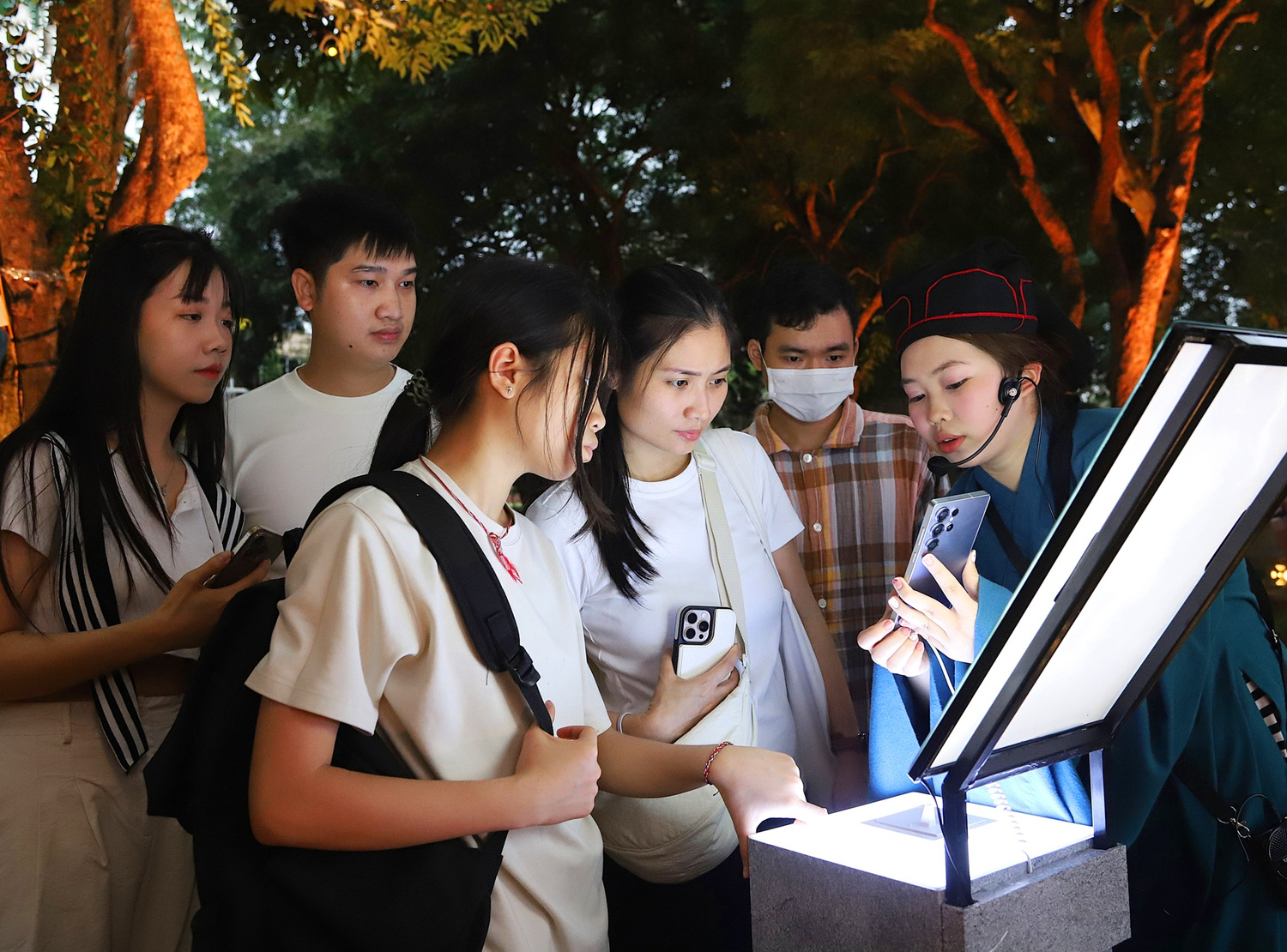
The current state of digital transformation in Vietnam's tourism industry
Since 2018, based on Directive No. 16/CT-TTg, dated May 4, 2017, of the Prime Minister "On enhancing the capacity to access the Fourth Industrial Revolution", the Ministry of Culture, Sports and Tourism has advised the Prime Minister to issue Decision No. 1671/QD-TTg, dated November 30, 2018, "On approving the overall project on applying information technology in the tourism sector for the period 2018 - 2020, with a vision to 2025". This is the basis for the tourism industry to promote the application of information technology to develop a smart tourism ecosystem, creating an environment for the community and innovative start-up businesses in line with the trend of the Fourth Industrial Revolution, contributing to promoting growth and enhancing the competitiveness of Vietnam's tourism industry.
In 2022, the Project "Application of Industry 4.0 technology to develop smart tourism, promoting tourism to become a spearhead economic sector" of the Ministry of Culture, Sports and Tourism was issued. During the period when the tourism industry was affected by the COVID-19 pandemic, the speed of digital transformation took place more rapidly, demonstrating the proactiveness and flexible adaptation of the Vietnamese tourism industry. Thanks to that, tourism connection and promotion activities were innovated and strongly implemented on digital platforms; information and data in the industry were gradually connected, creating a common database; tourism products applying new technologies, such as virtual reality, augmented reality, artificial intelligence, brought greater added value and more unique experiences to tourists; e-commerce transactions and cashless payments in tourism became increasingly popular...
The Vietnamese tourism industry has operated a shared platform to support state management of tourism, tourism service business activities and improve the experience for tourists, specifically as follows:
Vietnam tourism database system: serves the state management of tourism from central to local levels, with many component databases, such as travel businesses, accommodation establishments, tour guides, tourist areas/destinations...
Tourism statistical reporting software from the central to local levels: supports localities and tourism businesses in implementing periodic and ad hoc statistical reporting regimes according to regulations in documents of the Ministry of Culture, Sports and Tourism.
“Vietnam Travel” application: is a multi-service integrated digital platform to comprehensively support tourists with many utilities, such as looking up information on destinations, products, and tourism services; digital tourism maps; booking air tickets, booking rooms, buying sightseeing tickets; managing tourism programs; reporting to authorities...
Viet Card - Smart travel card : developed with modern, safe, secure technology, supporting tourists to make transactions and cashless payments safely, conveniently and quickly. The card is also integrated into the application "Vietnam Travel".
“Tourism management and business” application: supports businesses providing tourism products and services to connect with customers, set up online payment acceptance points, provide products, and connect with state management agencies in the tourism sector.
"Online - Connected - Multi-modal" electronic ticket system: helps to optimally control the ticket sales and ticket checking management process; minimizes the waiting time of tourists when entering the gate; applies the method of 1 single ticket for the whole group for large groups... Currently, Vietnam has deployed the electronic ticket system at many famous tourist destinations, such as the Temple of Literature - Quoc Tu Giam, the National Museum of History, the Vietnam Fine Arts Museum, the Ho Chi Minh Relic Site, Quan Thanh Temple, the Heritage House No. 87 Ma May Street and the Relic Site No. 22 Hang Buom Street...
Multimedia Guide System : designed for tourist attractions, relics, museums that need to explain and introduce information to visitors through text, voice, images, and vivid video clips. This product is integrated into the application "Vietnam Travel".
Along with building a shared platform, the tourism industry has issued the document “Guidelines for Digital Transformation in the Tourism Industry” and deployed many training courses to support localities nationwide in implementing digital transformation. This is a step to standardize content, guidelines, and implementation processes so that localities and businesses can research and apply them to develop tourism synchronously and effectively.
Vietnam's tourism industry has also promoted communication on websites and social networks that are widely used, such as Facebook, Zalo, Instagram, YouTube, etc. Thereby, information and images of Vietnam's tourism are increasingly spread to domestic and foreign tourists. The tourism communication program on YouTube "Vietnam: Go to love!" deployed by the Vietnam National Administration of Tourism, the Ministry of Culture, Sports and Tourism since 2021 has been honored to win the Second Prize (2022) and Third Prize (2024) at the National Award for External Information chaired and coordinated by the Central Propaganda Department (now the Central Propaganda and Mass Mobilization Department).
Many localities and businesses have actively implemented digital transformation in the tourism industry, such as Hanoi, Ho Chi Minh City, Da Nang City, Hue City, Quang Ninh Province... These are typical examples of dynamism and creativity in applying technology to support tourism activities, bringing unique and impressive products, creating breakthroughs, enhancing the experience for domestic and international tourists, such as applying electronic tickets, cashless payments, digitizing destinations, applying virtual reality technology, augmented reality, 3D mapping, light shows, drone demonstrations... Artificial intelligence (AI), big data are also increasingly applied in tourism management, business, event organization, market analysis, customer management, travel consulting... Energy-saving technology, Internet of Things (IoT) are also increasingly applied in tourist accommodation establishments, helping hotels optimize operations and bring experience a whole new level of convenience for customers.
The above efforts have contributed to the remarkable results of the tourism industry. In 2024, international visitors to Vietnam will reach nearly 17.6 million (up 39.5% compared to 2023, reaching 98% compared to 2019, the time before the COVID-19 pandemic), equivalent to the general recovery of global tourism and significantly higher than the average of the Asia-Pacific region (87%); domestic tourists will reach 110 million. Total revenue from tourists will reach about 840 trillion VND, contributing positively to the country's GDP growth. The development of tourism also entails the growth of many related industries and fields, such as accommodation services, food and beverage, transportation, logistics, retail, culture, handicrafts, tourism real estate, agriculture, food, information and communication technology, environment, energy... Many international organizations, global media agencies, famous travel consulting websites, and the international community have loved and honored Vietnamese tourism with many prestigious awards (1) .
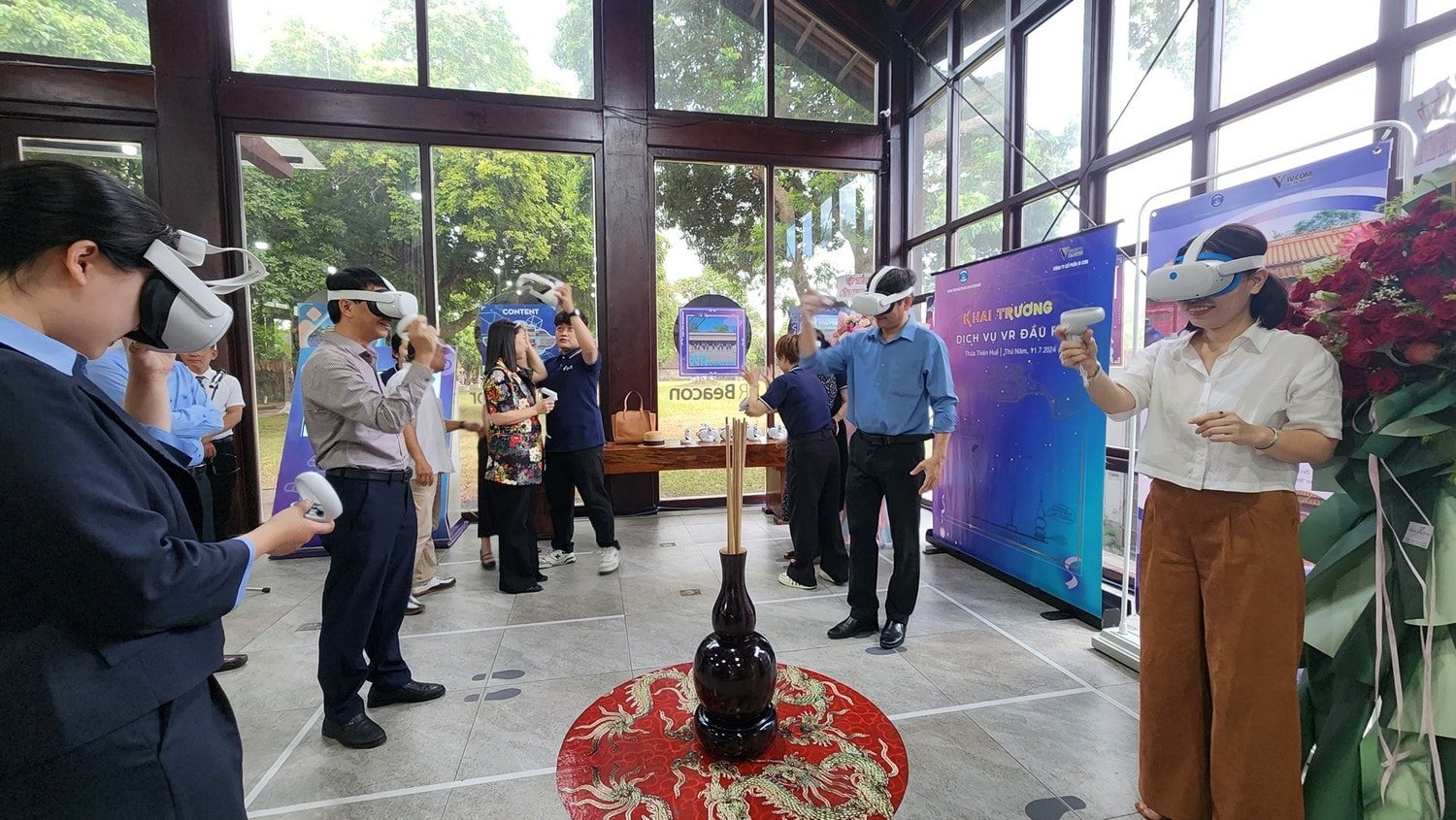
Promoting digital transformation in the tourism industry in the coming time
The Fourth Industrial Revolution is taking place strongly, the application of modern technology is an inevitable trend and an urgent requirement for the tourism industry. The application of scientific and technological achievements also brings great development opportunities for the tourism industry, such as:
Firstly, digital transformation helps personalize services, bringing more convenient and attractive experiences to tourists with new technology; mobile applications help tourists easily look up information, book services and pay quickly, saving time.
Second, digital transformation helps tourism businesses reach customers worldwide through online platforms such as social networks, websites, and mobile applications; digital tools help businesses analyze customer behavior, thereby building appropriate marketing strategies.
Third, digital technology allows the construction of smart tourism models, helping to effectively manage resources and improve service quality; analyze tourism needs and trends to make accurate forecasts and plan appropriate policies.
Fourth, modern technology platforms help tourism businesses improve management efficiency, optimize booking and ticketing processes, control services and customer care; blockchain can be applied to enhance information security and ensure safety for online transactions.
Fifth, digital transformation brings opportunities to develop tourism in a sustainable direction; cashless payments and electronic ticket systems, energy-saving technology will contribute to minimizing negative impacts on the environment; environmental monitoring technology and data analysis help control the number of visitors, limit overload, protect natural resources and cultural relics at tourist destinations.
However, besides opportunities, promoting digital transformation also poses many challenges for the tourism industry, such as:
Firstly, the investment cost is large in infrastructure and technology, while the majority of tourism businesses in our country are small and medium-sized, limited in finance and human resources, so they face difficulties in investing in establishing technical infrastructure and applying modern technological solutions.
Second, the shortage of digital human resources due to digital transformation requires a workforce in the tourism industry with high technology skills. In fact, many Vietnamese businesses do not have enough staff trained in digital technology, thereby affecting the ability to deploy and operate effectively.
Third, competition from cross-border online platforms with the strong development of booking and tour platforms with large market shares, the ability to reach global customers, providing flexible services at competitive prices, such as Booking, Agoda, Expedia, Tripadvisor, Airbnb...; creates great pressure on domestic tourism businesses.
Fourth, the issue of information security and data safety is facing many difficulties when the risk of cyber attacks and customer information theft is increasing. Businesses may face legal risks as well as reputational damage with customers if they do not have security measures.
tight
Fifth, the emergence of too many applications and websites, many of which are not directly related to tourism, makes it difficult for tourists to choose services.
In the coming time, to take advantage of opportunities, overcome challenges, keep up with the trend of the times, and truly become a key economic sector, the following key solutions need to be considered:
First, continue to facilitate policies.
Research and issue policies to support access to technology solutions for small and medium-sized enterprises in the tourism industry; have preferential policies on tax, land, and credit to mobilize investment resources in tourism clusters, dynamic tourism development areas, national tourism areas, and areas with tourism potential.
Second, build a synchronous and unified digital transformation ecosystem.
Building a synchronous and unified digital transformation ecosystem helps increase unified management capabilities, save resources, improve the effectiveness of state management in tourism activities, and create maximum convenience for domestic and international tourists. At the same time, due to the nature of tourism as a comprehensive economic sector, it is necessary to promote cooperation with related sectors and fields, such as trade, health, agriculture, railways, aviation, etc., thereby connecting data and platforms to make tourism truly "smart" and "connected".
Third, applying achievements of the Fourth Industrial Revolution.
Researching and applying the achievements of the Fourth Industrial Revolution is an urgent requirement to catch up with the world. These achievements have been gradually applied in the Vietnamese tourism industry, but the requirement is to be more in-depth and more effective. In particular, artificial intelligence, big data, and blockchain open up huge opportunities to support the tourism industry in business management and operations, helping to create breakthroughs in information security, data safety, etc.
Fourth, promote training of digital human resources.
Strengthening in-depth training on smart tourism and information technology application for tourism industry human resources. Strengthening the content on technology application and digital transformation in the tourism sector in the curriculum for learners at tourism training institutions.
Fifth, increase investment in digital transformation.
Continue to research and develop a project on digital transformation, develop a feasible and effective smart tourism ecosystem, and then propose to competent authorities for approval and allocation of funding for implementation.
Strengthen public-private cooperation, mobilize social resources, especially cooperate with enterprises with good technology capacity to develop digital technology products that are suitable for tourism needs and meet modern management requirements.
Sixth, strengthen international cooperation.
Strengthen international cooperation in digital transformation in the tourism sector, learn and apply knowledge, experience and solutions from international corporations and organizations, especially updating information on market trends, technology trends, solutions on applying new achievements in science, technology, operating models, deployment resources, support for human resource training...; contribute to improving competitiveness, aiming at sustainable development, affirming the position of Vietnamese tourism on the regional and world tourism map./.
---------------------
(1) See: Nguyen Tan Vinh - Vo Huu Phuoc: "Circular economic development: Experience of some European countries and policy implications for Vietnam", Electronic Communist Magazine , November 13, 2022, https://www.tapchicongsan.org.vn/web/guest/the-gioi-van-de-su-kien/-/2018/826257/phat-trien-kinh-te-tuan-hoan--kinh-nghiem-cua-mot-so-nuoc-chau-au-va-ham-y-chinh-sach-doi-voi-viet-nam.aspx
(2) For example, circular economy has been studied and institutionalized into many regulations that directly or indirectly mention it, such as Decision No. 622/QD-TTg, dated May 10, 2017, of the Prime Minister, promulgating the National Action Plan to implement the 2030 Agenda for Sustainable Development, Decision No.
889/QD-TTg, dated June 24, 2020, of the Prime Minister, promulgating the National Action Program on Sustainable Production and Consumption for the period 2021 - 2030, Law on Environmental Protection 2020. Clause 11, Article 5 stipulates: "Integrating and promoting circular economic models and green economy in the development and implementation of strategies, planning, plans, programs, projects and socio-economic development projects"
(3) Political report of the 10th Party Executive Committee at the Ho Chi Minh City Party Congress (term 2020 - 2025)
Source: https://tapchicongsan.org.vn/web/guest/kinh-te/-/2018/1123902/nganh-du-lich-day-manh-chuyen-doi-so%2C-gop-phan-phat-trien-toan-dien%2C-nhanh-va-ben-vung.aspx





![[Photo] Solemn opening of the 1st Government Party Congress](https://vphoto.vietnam.vn/thumb/1200x675/vietnam/resource/IMAGE/2025/10/13/1760337945186_ndo_br_img-0787-jpg.webp)




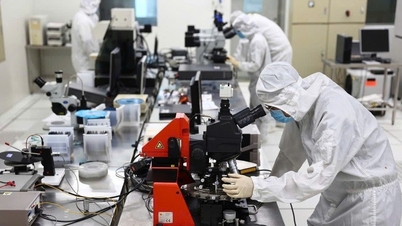

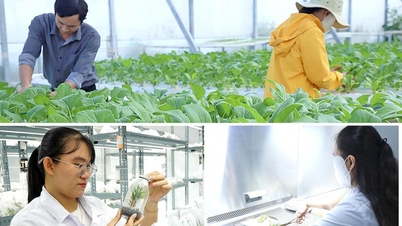






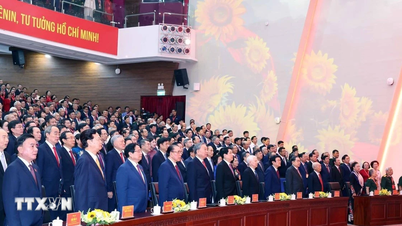

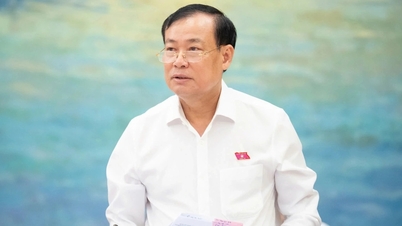

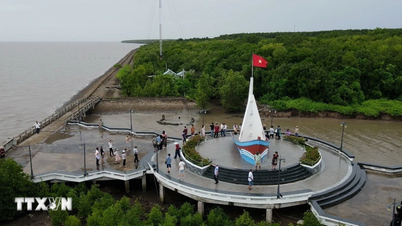
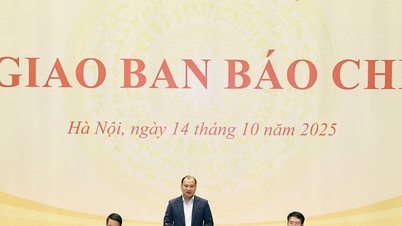

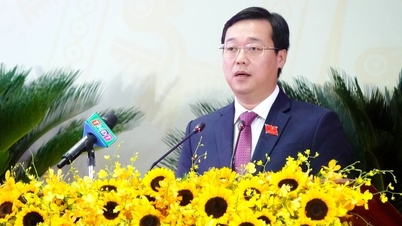































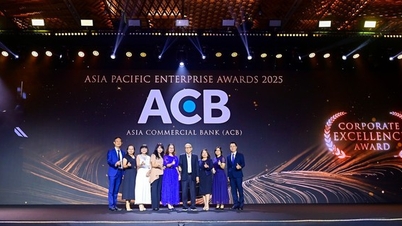
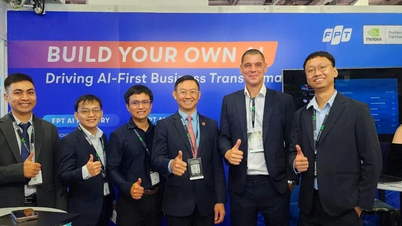






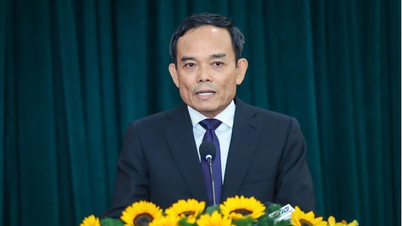




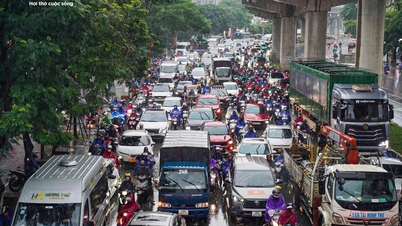
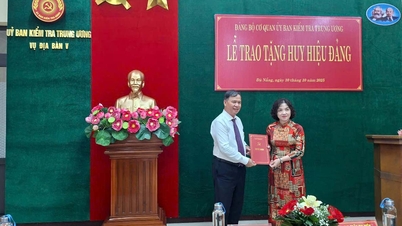


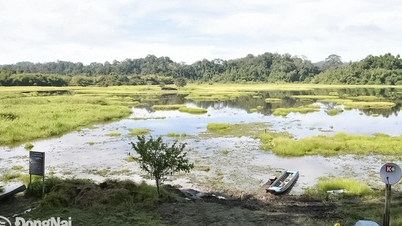




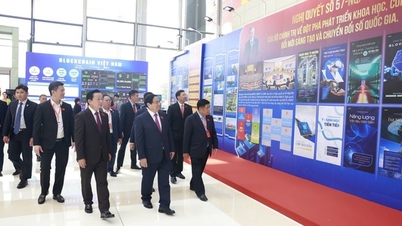
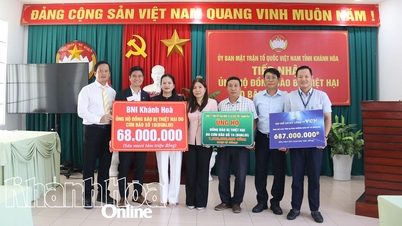

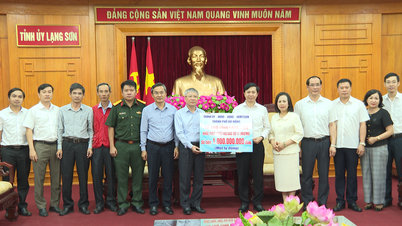
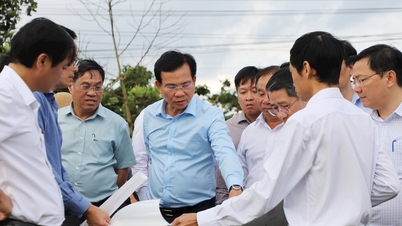

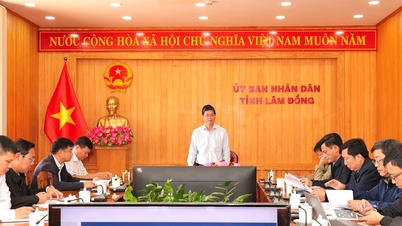
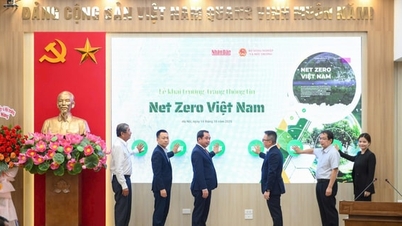

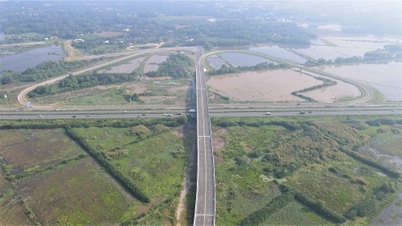











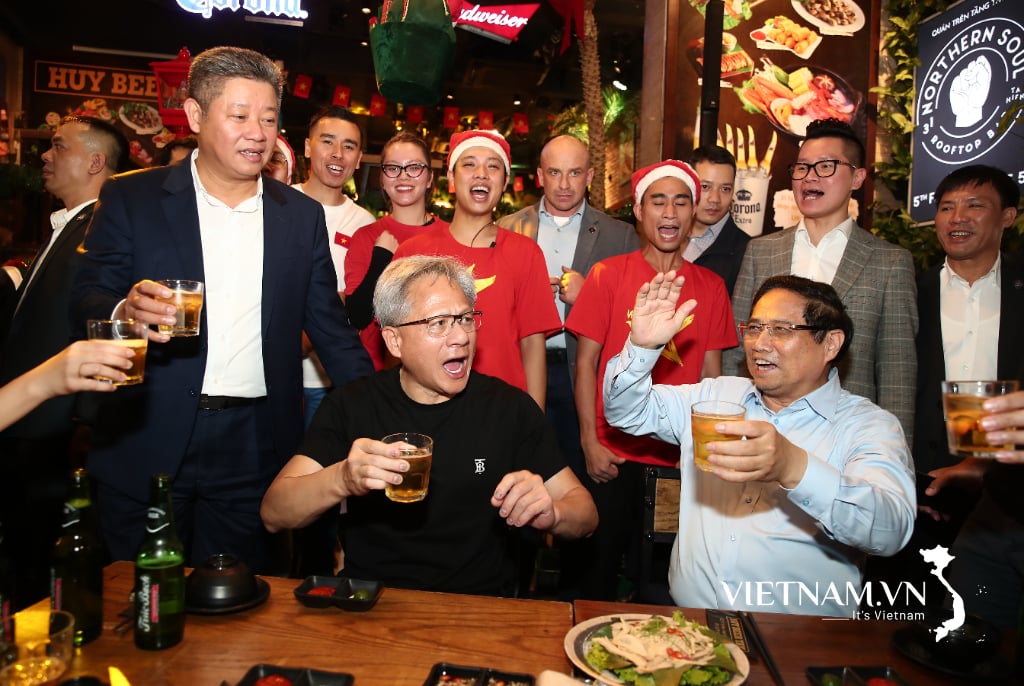
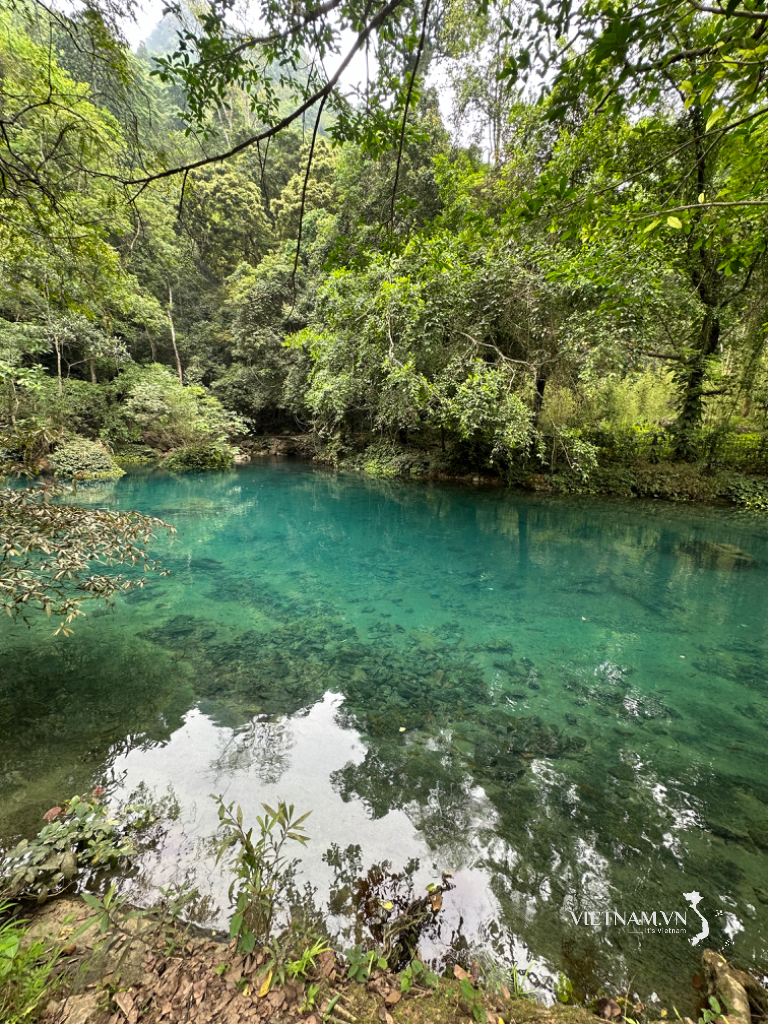

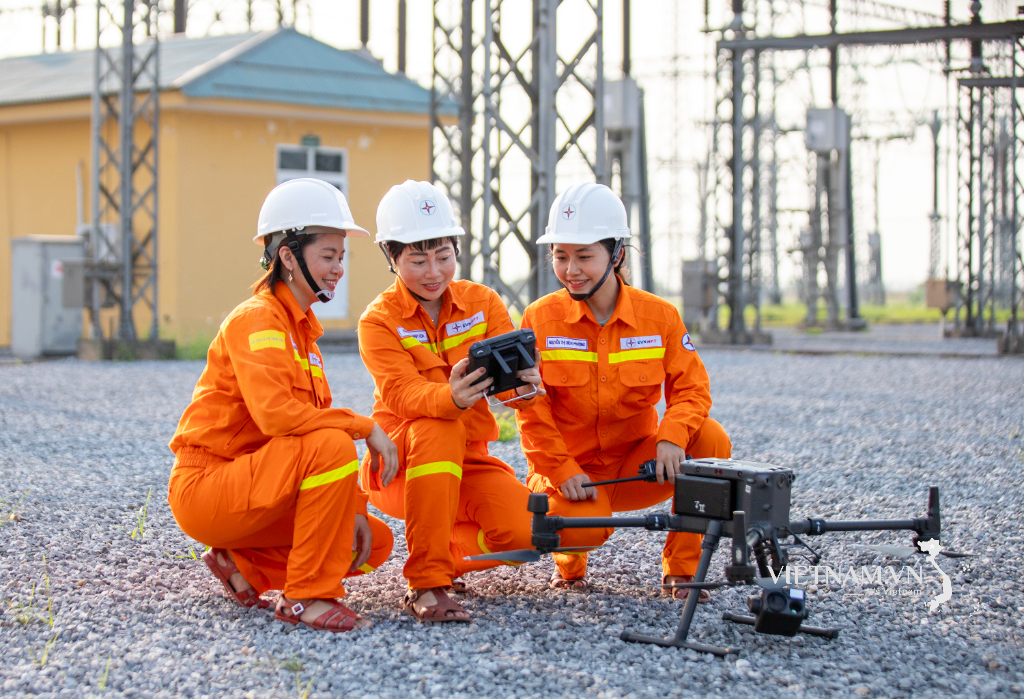
Comment (0)